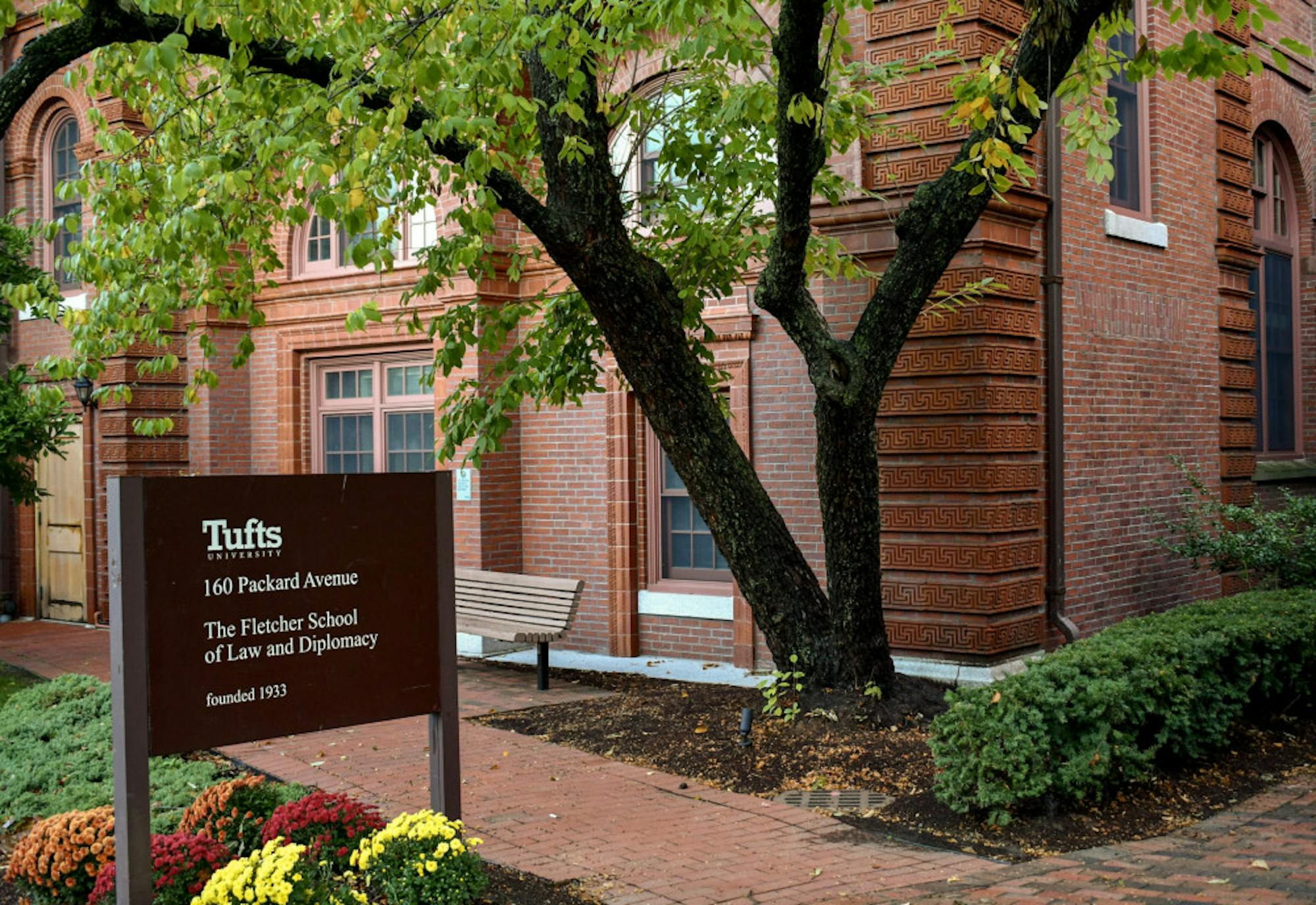The Fletcher School of Law and Diplomacy’s Fletcher Initiative on Religion,Law and Diplomacy (RLD) hosted its 2020 conference titled “Ukraine is Not Yet Dead: Religion, Pluralism and Geopolitics in Eurasia” on Friday. Divided into a keynote address and three panel discussions, the conference focused on the Orthodox Church in Ukraine and issues regarding geopolitics, pluralism and security in the country.
Rachel Kyte (F’02), dean of The Fletcher School, gave opening statements and highlighted the importance of religion and diplomacy to Fletcher’s scholarship.
“An international leader in this day and age, as probably was the case all through the ages, requires some introspection and some study and familiarity with how religion plays out in some of the more complex challenges that the world faces at the moment,” Kyte said.
Following an introduction by Elizabeth Prodromou (LA'81, F’83), the faculty director of the RLD, and Alan Henrikson, Lee E. Dirks professor of diplomatic history emeritus at Fletcher, John Herbst (F’78), former U.S. ambassador to Uzbekistan and Ukraine, delivered the keynote address.
Herbst began his lecture by stating that religion is essential to understanding culture and politics. He explained that while Russian and Ukrainian religious histories are intertwined, they are interpreted in vastly different manners by historians from both countries.
“According to the main line of Russian historiography, that intertwining means that the Ukrainian story is a subset of greater Russian history … this imperial interpretation has since been extended to the Soviet Union, then post-Soviet Russia,” Herbst said. “Ukrainian historians see their land as controlled by outside powers, including the Russian Empire.”
According to Herbst, although a majority of Russians and Ukrainians practiced Eastern Orthodox Christianity, the Russian Orthodox Church had overshadowed its Ukrainian counterparts throughout history, while Ukrainians sought religious independence. This tension continued through the fall of the Soviet Union, when the two remaining principal churches were the Moscow Patriarchate and the Ukrainian Autocephalous Orthodox Church.
Herbst then noted that the struggle between the two churches became a battleground for geopolitical clashes in Eurasia, as exemplified by Moscow’s reactions to the Orange Revolution in Ukraine in 2004.
Herbst underlined that religion in Ukraine was instrumental to its nation building and national identity.
“By and large the story of religious development in Ukraine is a positive one for the consolidation of Ukrainian society and nation,”Herbst said. “This was evident from the start of Ukraine’s independence: the government [promoted] confessional toleration [and] took on a new form consistent with the developed civil society in Ukraine.”
The first panel was titled “Contested Histories, Narratives, and Identity in Ukraine: The Intersection of Religion and Geography” and was moderated by Christopher Miller, assistant professor of international history at Fletcher. The main speakers for the panel were Serhii Plokhii, director of the Ukrainian Research Institute at Harvard University, Nicholas Denysenko, associate professor of theology at Valparaiso University and Oxana Shevel, an associate professor of political science at Tufts.
Denysenko discussed the rivalry between the Moscow Patriarchate and the Orthodox Church of Ukraine, and he noted that crucial elements were missing when addressing the conflict.
“Two things are woefully absent from proposals to resolving the Ukrainian church crisis: a desire for reconciliation among the [Ukrainians] and an entirely new method that teaches communities how to see their neighbors in a new way,” Denysenko said.
The second panel, “Religious Ecosystem: Pluralism, Freedom, and Civil Society,” was joined by Sergei Chapnin, chairman of the Artos Fellowship for Contemporary Christian Culture, Tetiana Kalenychenko, a sociologist of religion and Rev. Andrew Bennett, director of the North American Action Team of the Religious Freedom Institute. The session was moderated by Prodromou. The panelists reflected on the relationship between religious groups and civil society in both Ukraine and Russia.
Bennett observed a strong sense of solidarity among faith communities during the Euromaidan protests from 2013–14, and he cited this as an example of how religion contributes to social movements.
“[Ukraine] demonstrate[s] that a rich presence of religious communities in the public life of a country is very important and can support … justice more broadly and again uphold fundamental freedoms, such as religious freedom,” Bennett said.
The last panel focused on the geopolitics of Eurasia, with guest speakers Nikolas Gvodsev of U.S. Naval War College, Barbora Maronkova, the former director of NATO Information and Documentation Centre in Ukraine, Monica Toft, professor of international politics at Fletcher and Igor Zevelev of the Woodrow Wilson International Center for Scholars.
Moderated by Sharyl Cross, a global policy fellow at the Woodrow Wilson International Center for Scholars, the third panel focused on the geostrategic implications of religion in Eurasia.
Echoing Herbst’s keynote address, Maronkova emphasized the political influence of the Moscow Patriarchate and argued that Russia used the church as a tool for warfare and propaganda against Ukraine.
“This brings me to Ukraine, [where] church and religion are used as instruments in the so-called hybrid warfare … where we have seen Russia basically using the Russian church and the Russian Orthodox Church in Ukraine as one of the many instruments in its toolbox,”Maronkova said.






